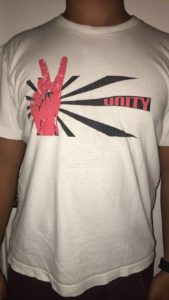
When doing research for this post and reading through Colin Kaepernick’s 18 minute post-game transcript explaining why he sat for the American national anthem, the murder of Terence Crutcher appeared on my Twitter feed. It’s impossible for me to know what it’s like to be black and fear my car breaking down. The best I can do is read and listen. It’s still painful knowing Terence Crutcher’s death is senseless. The continued acts of police brutality throughout the United States of America are why Colin Kaepernick chose to protest in the first place.
While I was initially impressed with Kaepernick’s exploits in Super Bowl XLVII, his anthem protest is bigger than anything he does on the football field. Initially, Colin chose to sit during The Star-Spangled Banner but amended his stance to kneeling after a 90 minute conversation with teammate Eric Reid and former Green Beret and NFL player Nate Boyer. Colin wanted to make it clear that insulting the military was not his intention but reiterated that he is uncomfortable standing during the anthem without seeing tangible change.
Despite clearly outlining what he intends to accomplish by taking a knee, there are still many detractors who question Kaepernick’s motives. From a former NFL quarterback telling him that he’s “a backup quarterback whose job is to be quiet, and sit in the shadows,” another former NFLer saying “he’s not black,” or a current MLB athlete being downright ignorant, these statements are all problematic and don’t advance conversation about the issue. There is a bigger, more important conversation to be had than football. For the people who think that Kaepernick is simply trying to resurrect his career through off-the-field antics, I disagree. He is taking a much greater risk by speaking out due to the nature of unguaranteed contracts in the NFL and his tenuous position as a backup quarterback. It baffles me that there is more outrage over kneeling during the national anthem than the deaths of unarmed black men.
Kaepernick and the 49ers organization have both pledged $1 million each to organizations that will help foster positive change regarding racial and economic disparity and build relationships between communities and law enforcement. Colin having the support of 49ers owner Jed York is a positive development for socially conscious athletes and has already encouraged more to come forward. Being part of the multibillion dollar NFL, Kaepernick recognized the magnitude of his platform and sought to make people feel uncomfortable on a grand stage to provoke meaningful and much needed conversations.
Oakland A’s pitcher Sean Dolittle, spoke to the lack of social activism in the MLB:
As far as “I Can’t Breathe” or “Black Lives Matter” or the Kaepernick anthem demonstration, I feel uncomfortable speaking to that. I’d rather listen. Here are the facts though: The league is composed of over 60 percent white men. When so much of the league has a background or comes from a place where there might be more privilege and opportunity, it’s very difficult to relate to something they have never seen nor experienced. That’s human nature. People are slower to educate themselves and be informed about something if they have never experienced it. They might even downplay the level at which those problems exist. But that certainly doesn’t let people off the hook. My only experiences with police are when they stand guard in our bullpen or when they escort us to the airport. No one has ever questioned my legitimacy as a citizen or a homeowner or a pedestrian. But I can’t pretend it doesn’t happen just because it has never happened to me. If we are willing to have an open mind and empathize rather than immediately getting defensive, then maybe we can start a far more constructive dialogue that hopefully leads to addressing these problems.
When I read that nuanced and open-minded perspective, I am encouraged that important dialogue can take place. Rather than rushing to criticize, why not listen to Colin’s grievances and change the conversation? Accepting and trying to empathize with others will help us discover solutions much sooner than spewing incendiary remarks without thinking about the ultimate reasons for protest.
In a few weeks, I will be back coaching a basketball team of twelve to fourteen year old boys who are predominantly black and comprised of mostly minorities. I listen to their stories, see the innocence in their eyes, and witness the pure joy they experience on the basketball court twice a week. I hope that their futures will be bright and that they get an opportunity to realize their potential. It pains me that any of them could have been Trayvon Martin or Tamir Rice – just being kids and having their lives taken abruptly without reason. Colin Kaepernick is kneeling because he sees injustice. Let’s steer the conversation towards senseless police brutality, building bridges between impoverished communities and law enforcement, having empathy for the plight of other people, developing policies that combat systemic racism and oppression, and the future for our youth.

